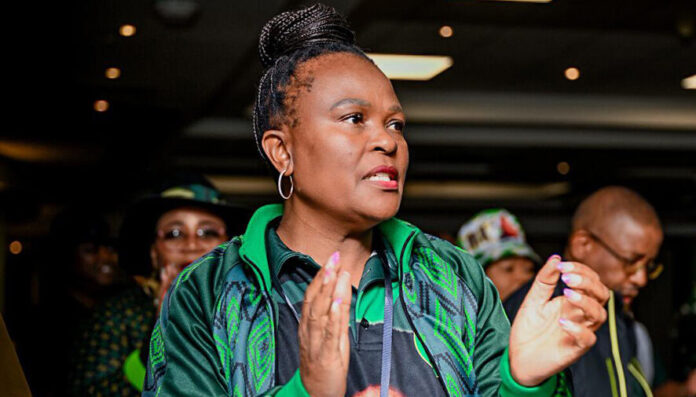Umkhonto we Sizwe Party (MKP) Mpumalanga chairperson, advocate Busisiwe Mkhwebane, has moved swiftly to fill gaps in the party’s provincial leadership following the suspension of provincial secretary Abednego Mkhatshwa.
In an internal circular sent to members in the province recently, Mkhwebane announced temporary appointments to ensure what she called “the effective functioning of the organisation” until the party’s secretary-general’s office visits the province.
“The urgent replenishment of the provincial detachment will help meet the workload of the province, coordinate programmes, and close gaps created by the vacancies,” she wrote in the circular.
The letter outlines eight key portfolios — from chairperson to treasurer — supported by a team of additional members across the province’s three regions: Nkangala, Gert Sibande, and Ehlanzeni.
Among those named are Makhosini Yende, Jabulani Lekhuleni, Dr Nelisiwe Msibi, Njabulo kaChibi Mthabela, Mbalenhle Masinga, Johan Mkhatshwa, and Vusi Skhosana.
Mkhwebane, who also serves as an MKP MP, said the new structure will operate until national officials “establish and appoint structures officially”.
Division of party duty
The interim detachment’s duties are extensive — ranging from media and communications oversight to mobilising members and managing the party’s finances.
“The provincial chairperson is responsible for media and communications in the province, meaning all media work and workers of uMkhonto we Sizwe in the province must fall under the provincial chairperson,” Mkhwebane stated.
The appointments come just days after public tensions between Mkhwebane and Mkhatshwa, who was accused of calling for her to be “burned alive” in a leaked voice note.
He has since denied the claims, insisting his words were taken out of context.
For now, Mkhwebane appears determined to keep the MKP ship steady in Mpumalanga — even if the political waters remain turbulent.
Mkhatshwa told Sunday World that he has requested police to investigate a possible violation of the Protection of Personal Information Act, following what he described as an illegal recording made without his consent.




